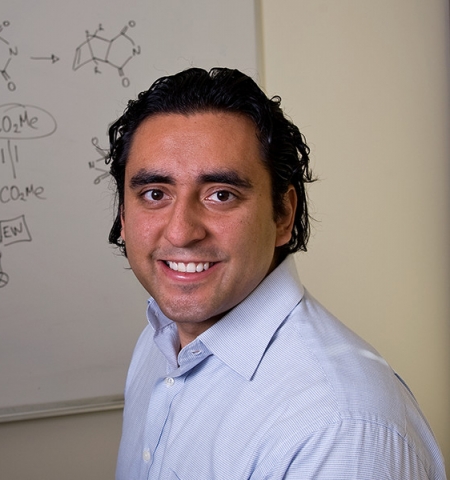
Date:
Location:
Speaker:
TITLE:
Molecular engineering of catalytic interfaces: Towards improved stability for earth-abundant catalysts
ABSTRACT:
In an increasingly carbon-constrained world, lignocellulosic biomass, natural gas, water, and carbon dioxide have emerged as attractive options to supply energy, fuels, and chemicals at scale in a cleaner and more sustainable manner. However, the unique chemical makeup of these alternative energy sources has created daunting conversion challenges, requiring the development a new generation of catalysts to promote selective bond-breaking events.
In this lecture, I will show how advanced synthesis techniques can be coupled with rigorous reactivity and characterization studies to unearth unique synergies in nanostructured catalysts. More specifically, I will discuss the use of molecular engineering tools to design nanostructured earth-abundant heterometallic early transition metal carbide (TMC) nanoparticles as a novel platform to replace (or at least drastically reduce) noble metal utilization in electro- and thermo-catalytic applications. I will present a new method to synthesize TMCs covered in atomically-thin layers of noble metals with exquisite control over composition, size, crystal phase, and purity. Controlling these features has direct consequences on the electronic (and thus catalytic) properties of the noble metal overlayer. The advantages of this new class of materials will be demonstrated in the context of CO-tolerant electro-oxidation reactions and selective partial hydrogenation of hydrocarbons (Figure 1). By gaining a fundamental understanding of the parameters governing the behavior of these interfaces, we can then derive and implement design principles aimed at improving their stability and long-term performance.
BIO:
Prof. Román was born in Mexico City, Mexico. He obtained his Bachelor of Science degree in Chemical Engineering at the University of Pennsylvania in 2002 and completed his Ph.D. at the University of Wisconsin-Madison, also in Chemical Engineering, under the guidance of Prof. James Dumesic. At UW he worked on developing catalytic strategies to convert biomass-derived carbohydrates into platform chemicals. Before joining the department of Chemical Engineering at MIT, he completed a two-year postdoc at Caltech, working with Prof. Mark E. Davis on the synthesis of zeolites and mesoporous materials for the activation of small molecules and biomass-derived oxygenates.
Prof. Román’s research lies at the interface of heterogeneous catalysis and materials design. His group applies a wide range of synthetic, spectroscopic, and reaction engineering tools to study the chemical transformation of molecules on catalytic surfaces. A strong emphasis is placed on the application of catalytic materials to tackle relevant problems associated with sustainable energy, biofuels, and renewable chemicals. Current efforts are geared toward designing water-tolerant solid Lewis acids, investigating cooperative effects in porous materials for C-O and C-H bond activation, and engineering transition metal carbides and nitrides as replacements for critical materials. He has been awarded the SHPE Outstanding Young Investigator, the NSF CAREER, Aris, AICHE CRE Young Investigator, and ACS Early Career in Catalysis awards.



